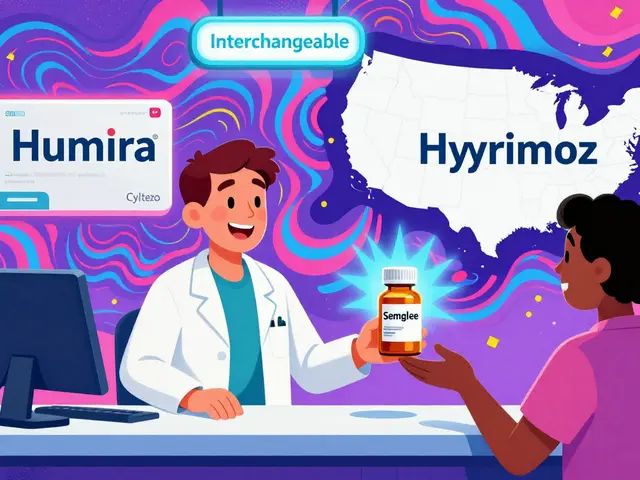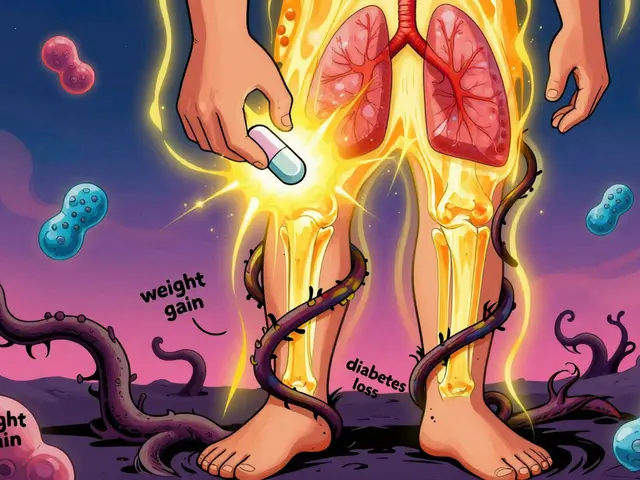Parasitic Infection Treatment Made Easy
If you think a bug is living inside you, you're not alone. Parasites can cause stomach pain, diarrhea, fatigue, or itchy skin. The good news? Most of them are treatable with over‑the‑counter drugs or simple home steps. This guide shows exactly what to look for and how to get rid of those unwanted guests without confusion.
Common Parasites and Their Symptoms
First, spot the culprit. Giardia gives watery diarrhea that lasts weeks. Pinworms cause nighttime itching around the bottom. Hookworm often shows up as anemia or a rash on your feet. Toxoplasma can be silent but may flu‑like you feel tired and sore.
The key is timing: if symptoms pop up after travel, raw meat, or untreated water, think parasite. A stool test from a clinic confirms it, but many pharmacies let you buy rapid kits for home use.
Effective Treatments – Drugs and Home Remedies
Once you know what you're dealing with, treatment is straightforward. Mebendazole or albendazole work well for most roundworms and hookworms. For giardia, a short course of metronidazole or tinidazole clears the infection in 5‑7 days.
If you prefer natural options, pumpkin seeds, garlic, and papaya seed powder have shown anti‑parasitic effects in small studies. Mix a tablespoon of crushed pumpkin seeds into a smoothie daily for two weeks; it may help flush out tapeworms. Garlic tablets (300 mg) taken twice daily also add an extra punch.
Don’t skip the basics: stay hydrated, eat fiber‑rich foods like carrots and apples to keep your gut moving, and avoid sugary drinks that feed parasites. Probiotics such as Lactobacillus can restore good bacteria after a drug course.
If symptoms persist beyond three days of medication, call your doctor. Sometimes a second round or a different drug is needed, especially for stubborn infections like strongyloidiasis.
Prevention beats treatment every time. Wash hands with soap before meals, cook meat to safe temperatures (165 °F/74 °C), and filter or boil water when traveling abroad. These habits cut the risk by more than 80%.
Bottom line: recognize symptoms early, confirm with a test if you can, use the right medication or a proven natural remedy, and keep up good hygiene. With these steps, parasitic infections become a short‑term problem rather than a lingering nuisance.
Top 9 Alternatives to Stromectol for Parasitic Infections in 2024
Explore the leading alternatives to Stromectol for treating parasitic infections in 2024. Discover medications like Albendazole, Praziquantel, and others, highlighting their advantages, limitations, and suitable applications. Learn how these drugs work against various intestinal and systemic parasites, making them essential in combatting such infections.






